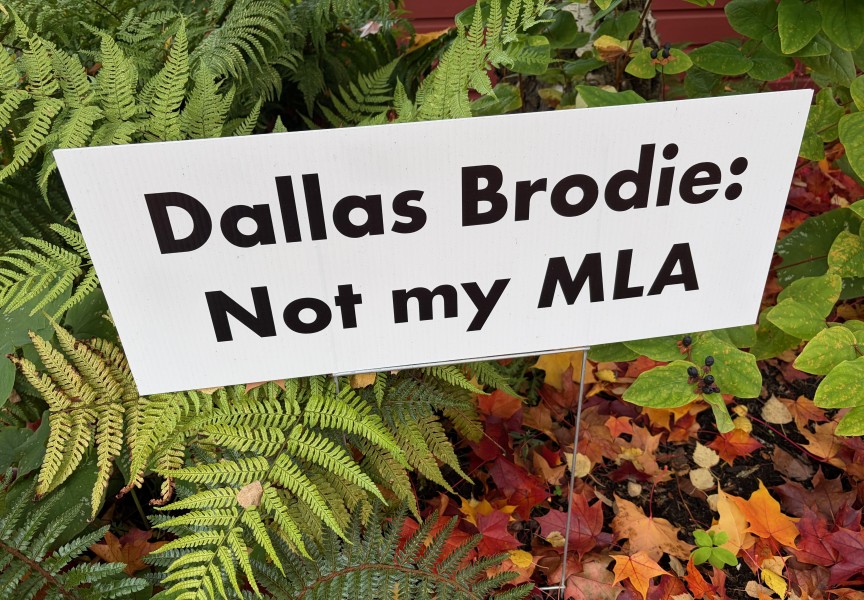A lawsuit launched by Tk’emlups te Secwepemc and Sechelt First Nations against Canada seeking compensation on behalf of day scholars is looking for first nations participation. Efforts are being made to reach first nations bands across Canada to notify them of this lawsuit.
The litigants are seeking out any aboriginal band in Canada who had band members attend an Indian residential school or has had an Indian residential school on or near their property or land.
Bands are being asked to decide whether or not they wish to opt in to the suit, and have been given a deadline of Feb. 29, 2016.
While the suit cites Kamloops and Sechelt Indian Residential Schools specifically, it is open to other Canadian First Nations that had Indian residential schools located at or near their communities, including those near Ahousaht Indian Residential School, Alberni Indian Residential School and Christie Indian Residential School, located in Nuu-chah-nulth territories.
According to Taleetha Elliott, day scholar coordinator, Sechelt, the case has been certified for three classes. There is the Band Class which represents the communities as a whole.
The Day Scholar Class represents former students who attended Indian residential school classes but didn’t spend nights at the institution.
The third class is the Descendant Class, which represents children of the Indian residential school survivors. The Descendant of a Survivor Class consists of all persons who are the children of Survivor Class Members or were adopted either legally or traditionally by a Survivor and their spouse.
“The lawsuit aims to close a gap in which thousands of daytime students at residential schools—which operated from roughly 1874 until 1996—were denied monetary compensation in the government’s 2006 Indian Residential Schools Settlement Agreement (IRSSA) in the same manner as students residing in the schools. While the so-called "day scholars" could apply for individual assessment for abuses experienced in school, they were excluded from "common experience" compensation for having attended,” reads the Justice for Day Scholars website www.justicefordayscholars.com
The suit also seeks declarations regarding Canada’s role in the failure to protect Aboriginal language and culture, and looks for compensation for the children of survivors, and the bands to which survivors belong.
According to the website, the lawsuit moving forward represents every Aboriginal person, from coast to coast, who attended an Indian Residential School as a Day Scholar.
The plaintiffs, represented by Peter Grant & Associates and Phillips Gill LLP, claim that Canada acted unlawfully and harmed those who attended at the residential schools, and their children and first nations communities. It is alleged that Canada did this by using the schools to attempt to eliminate aboriginal languages, cultures and traditions.
The lawsuit further claims that many who attended Indian residential schools suffered mental, emotional and spiritual abuse.
Those bands that opt in will discuss financial contributions for court costs with the two representative plaintiffs. Bands that opt in will be responsible for costs of individual cases involving their band.
Sechelt Hereditary Chief Garry Feschuk says his nation and Tk’emlups te Secwepemc have already committed $750,000 each toward the cost and are planning a major fundraiser in October.
He said other first nations are opting in and some are showing their support in various ways like offering use of their meeting spaces for free.
Feschuck said there were 140 residential schools across Canada that contributed to first nations’ loss of language and culture and were detrimental to community wellness.
“Our nation is down to three fluent speakers,” said Feschuck, adding that if more first nations (bands) join the lawsuit it puts increased pressure on Canada to settle.
While the two representative plaintiffs will be responsible for legal costs on all common issues, they would like to discuss with other nations their willingness to share in the legal costs.
If a settlement is reached and financial awards are made, bands that opt in are entitled to a share.
Bands that do not opt in will get no money or benefit from this lawsuit, but will retain their right to sue Canada or any religious organization on their own.
Whether a band opts in or not does not affect the rights of individual band members to participate as Survivors or Descendants. Members of the Survivors and Descendant Class are automatically included in the lawsuit and will share in the benefits if there are any. However, some may wish to opt out of the lawsuit.
Those that wish to opt out must download forms from the www.justicefordayscholars.com , fill them out and return them to the law offices of Peter Grant and Associates.
Those that opt out will not be entitled to any benefits from this lawsuit; however, they will retain their right to sue the Government of Canada or religious organization on their own.
The deadline for Survivors and Descendants to opt out is Nov. 30, 2015.
The court has not decided whether Canada did anything unlawful, and the case is currently planned to go to trial, unless it is dismissed or settled. There is no guarantee that the plaintiffs will win any money or benefits and it is not known how long the negotiations or trial will last.
This court case does not include Indian Day Schools and those that attended them.
For more information go to www.justicefordayscholars.com or call toll-free 1-844-558-5538.






